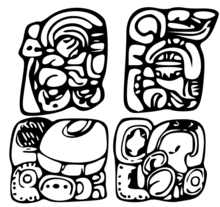Oniyism
Oniyism (Mutli: Oniyix Xook) also called Traditionalism is a religious movement inside the White Path considered alternatively to be Conservatist or Revivalist predominant in the Mutul. It was developed during the 20th century in response to the Eastern Wind and was first used in plural ("Oniyix Xookob") as a catch-all term for many conservative or reactionary religious groups or philosophies. Today, the expression is used to refer specificaly to a political and religious philosophy that advocate for the defense of traditional social institutions around the core concepts of Tradition, Organic society, hierarchy, and authority. More specificaly, they defend the Divine nature of the K'uhul Ajaw, the use of the Yax Tz’ibich Chaakal Chakun as the constitution of the Mutul, and of a strict application of the K'uhul Hun through the interpretation of the many commentaries and legal ruling based on it, regrouped in a serie of books called the "Utzalalob".
At first, the movement became popular as an opposition to the Orientalists in power between 1930 and 1955. Oniyists groups were always centered around a religious figure, often a priest but also sometime wandering preacher or healer in the most remote regions of the Divine Kingdom. These figures then maintain contacts with one another, either through secret cells or social and institutional hierarchies. This dense system of both vertical and horizontal relations was a characteristic of the Oniyist opposition, as opposed to the Occidentalists with a strict horizontal system of autonomous cells, and the Orientalists tenuous popular base and reliance on the social position of its members to survive. Since 1955, the cohesion of the Onyist networks has dwindled, but it remain a proeminent ideology thourough the Mutul, espoused by many priests, both high and low ranking, administrators, politicians, and large parts of the population.

